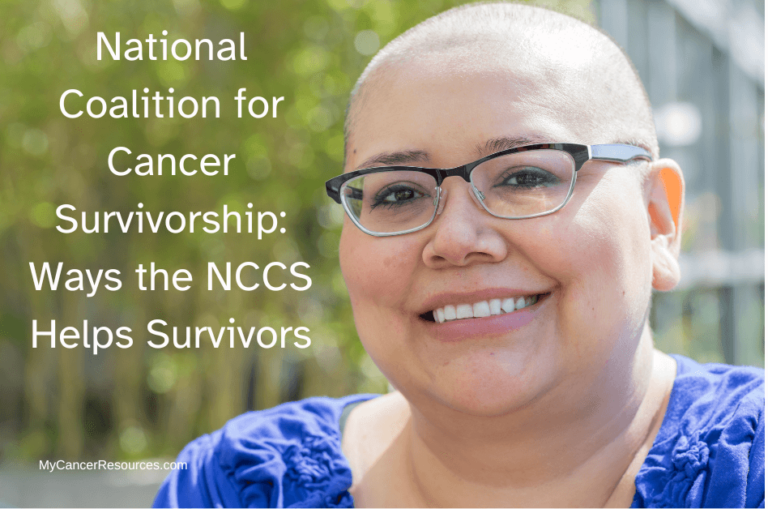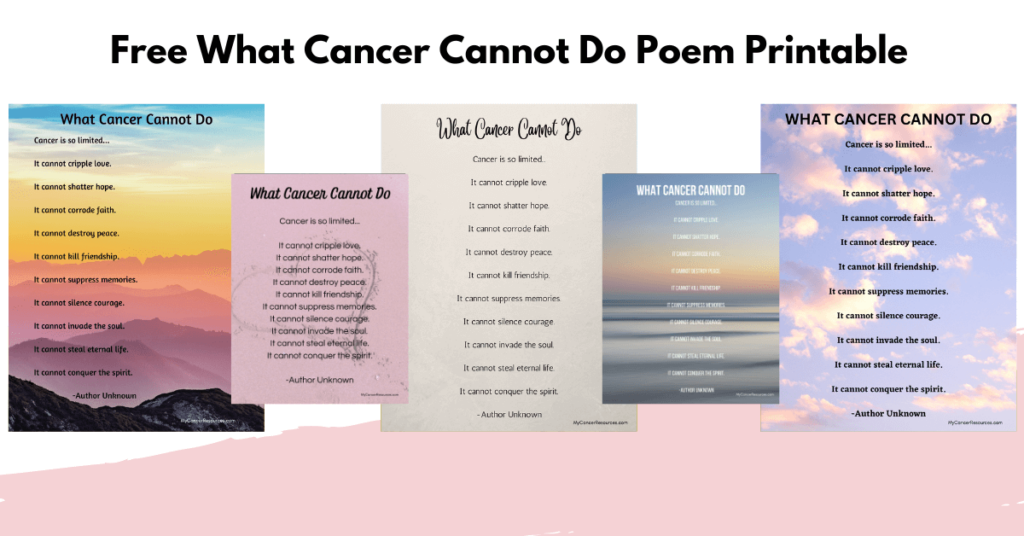
One resource that I’ve recommended countless times to cancer patients and now clients is the National Coalition for Cancer Survivorship (NCCS).
America’s oldest cancer survivor-led organization, NCCS takes a unique and powerful stance in championing quality cancer care for all across the United States. This article describes the organization, and how their resources can help you.
Their primary focus is to work with policy makers and legislators at all levels represent and advocate for cancer survivors to improve their quality of care and quality of life after diagnosis.
They represent the millions of Americans who are living with, through, and beyond a diagnosis of cancer. NCCS works to influence changes in the way the U.S. researches, regulates, finances and delivers quality cancer care for all.
The NCCS uses a widely accepted definition of survivorship, that all people become survivors at the time of diagnosis of cancer.
Annual Survey
Each year the NCCS conducts the State of Survivorship Survey to better understand the differences in survivor attitudes, experiences, and needs.
In 2023, they surveyed 2,345 patients, survivors, and caregivers.
For the first time in 2023, caregivers were included. I’m so glad they gathered feedback from caregivers – that aligns with my position that caregivers are a very important participant in the conversations surrounding cancer, and their voices are critical to help understand how organizations and coaches like myself can serve cancer caregivers too.
The information gathered in the State of Survivorship Survey helps NCCS decide how to best focus their efforts on serving those in the cancer community.
The data gathered over the years has led to the development of the programs and products discussed below.
Empowering Survivors: Resources & Support
One of my favorite resources to recommend is the Cancer Survival Toolbox. I first learned about this as a member of the Association of Oncology Social Workers. This free audio program is used not only by patients, but also healthcare providers and other cancer advocates.
These recordings can be listened to on a variety of podcast apps. Topics include communicating with your healthcare team, treatment decision-making, how to advocate (speak up for your own care, expressing your wishes and actively participating in decisions regarding your cancer treatment) among others.
NCCS also has downloadable PDFs for anyone on the cancer continuum to request, or they have printed booklets that can be mailed directly to your home.
Another great resources to check out is their Survivorship Checklist which can be customized to wherever you are in your cancer journey.
NCCS also presents webinars and training materials for healthcare teams and other professionals working in the field of oncology. I have watched a number of these webinars and have found them to be really helpful and informative.
Advocacy & Policy Change
At the heart of the National Coalition for Cancer Survivorship’s (NCCS) mission lies its Cancer Policy & Advocacy Team (CPAT), a collective of passionate patient advocates and survivors tirelessly working at the federal level to ensure that quality cancer care becomes a reality for all.
Through CPAT, advocates fight for policy change to improve the quality of life for those touched by cancer.
With every policy they influence, with every discussion they have with policy makers, CPAT members bring the voices of patients, survivors and caregivers to those with the power to create legal change within the United States.
Harnessing the Power of Survivorship
NCCS supports survivors across the full spectrum of survivorship issues, from patient education on current employment rights (and working to improve them via federal legislation) and providing online resources for those at any point in the cancer experience.
They also develop training for health care providers on how to improve the quality of cancer care they provide. NCCS also encourages doctors and other members of the cancer care team to speak out until quality care is available to everyone with cancer across the country.
NCCS is now including the important voices of caregivers into the mix. I’m sure in the coming years they’ll create additional resources and support services to help cancer caregivers.
I’m looking forward to seeing the education and resources they develop in the coming years and recommending them to my clients.



